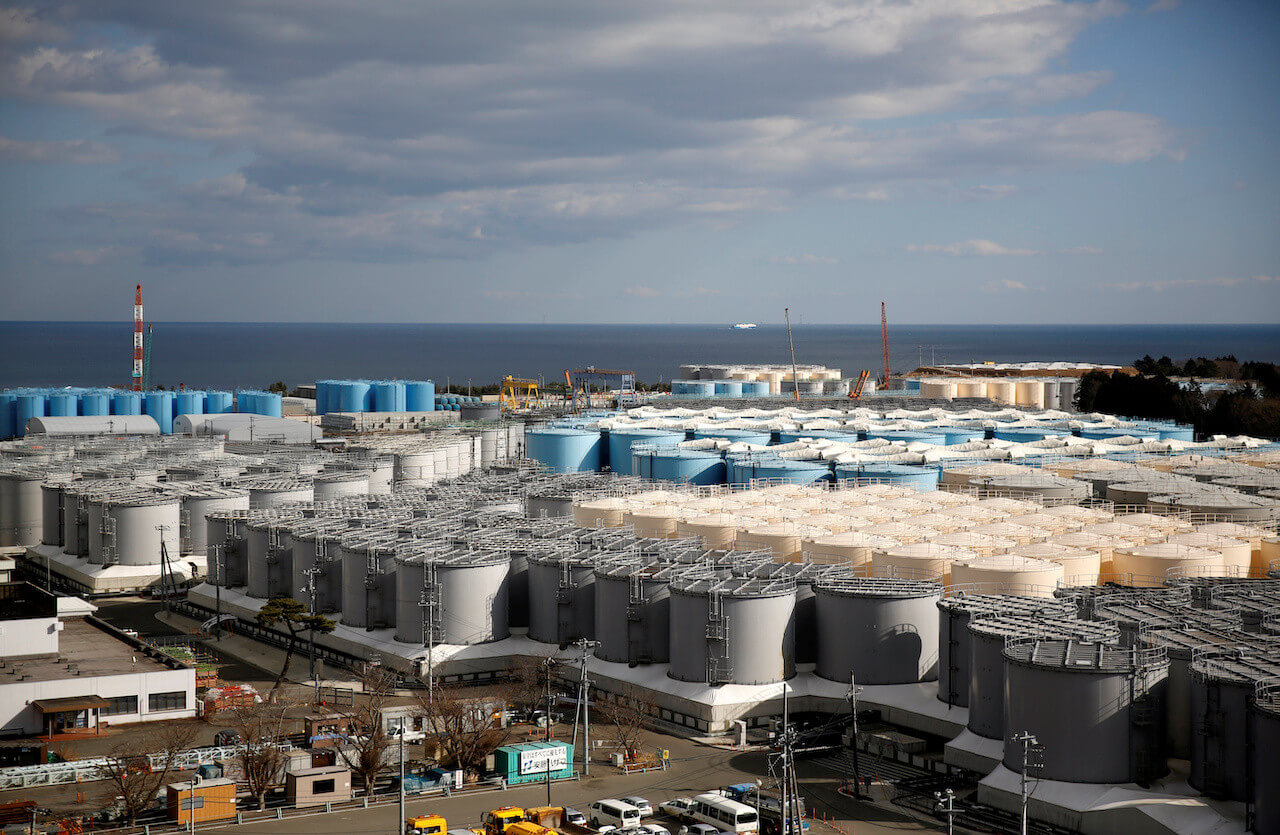Japanese state media reports suggest that the government is planning to release millions of gallons of treated radioactive water from the Fukushima Dai-Ichi nuclear power plant into the Pacific Ocean, which has caused alarm among environmental groups, locals, as well as neighboring nations.
Approximately 1 million cubic meters of water—which is enough of a quantity to fill 400 Olympic-sized swimming pools—has collected in the plant since 2011, after it was damaged in an earthquake and tsunami that year. Though the water has been treated and is being stored at the site itself, it is still radioactive. Kyodo News reported that an official decision on the matter could be made as early as this month, ending years of debate on how to best dispose of the water. However, the actual release is unlikely to take place for at least another two years, since it requires construction work and an assessment by the Nuclear Regulation Authority. Additionally, the tanks that the water is currently being stored in are expected to hit their full capacities by mid-2022.
The news has drawn widespread criticism and concern regarding the environmental impact of such an action, but also its impact on the fishing industry. Local fishers and residents have opposed the release, arguing that such a measure would hurt their nearly a decade-old struggle to rebuild trust among domestic and foreign consumers about the safety of their catches. Fishing activities along the Fukushima coast were halted in the immediate aftermath of the disaster, and trial operations started in June 2012, with stringent restrictions on fishing zones, types of catch, and fishing dates.
Dumping the water into the Pacific also threatens to hurt Japan’s relationship with South Korea, which is already strained over issues of wartime labor and trade. The latter has already banned all seafood imports from this part of Japan and has urged the country to be more transparent about the process and take a measured approach to the crisis that does not risk the environment and public health.
Japanese officials have said that the government will make a “responsible decision” after engaging in extensive discussions. A government panel earlier this year stated that releasing the water into the sea or evaporating it were realistic options to consider. The UN’s nuclear watchdog, the International Atomic Energy Agency (IAEA) has said that both options are feasible and have been used by other power plants as well. Tokyo has also stressed that any water released into the environment will be re-treated to ensure it was in line with international standards, and that the discharges would take over decades to complete.
Japan Set to Release Fukushima Water Into the Pacific
The news has drawn widespread criticism and concern regarding the environmental impact of such an action, but also its impact on the fishing industry.
October 21, 2020

SOURCE: THE JAKARTA POST
